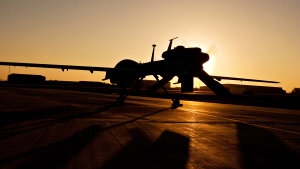This Army Vet Led The Hunt For ISIS—Now He’s Using Drones To Save Kenya’s Wildlife
The tough soldier who spent a decade leading a team in Iraq that guided drones and special forces to hunt down and kill top ISIS leaders retires from the military. Back in the States, he starts a new company that takes advantage of his military experience and high-tech knowledge, but for a different purpose—using drones to find mines in Somalia and nab wildlife poachers in Kenya. If you think that sounds like the kind of story Hollywood producers would salivate over, you’re right.
Brett Velicovich’s new book, Drone Warrior, is all about his time with a small intel team that used the latest technology, classic spycraft, and military strategy to help capture and kill high-value targets in Al Qaeda and ISIS. It was released by Dey Street Books last month and is already being turned into a movie by Transformers director Michael Bay. The Army veteran, with journalist Christopher S. Stewart, tells the story of how he and his team tracked down ISIS leader Abu Bakr al-Baghdadi (who ultimately got away), how they killed or captured most of the 20 most-wanted terrorists across Iraq in only three months, and how they used drones to find some of the missing Nigerian schoolgirls kidnapped by Boko Haram.
It’s breathless storytelling, reflecting the growing impact of technology in U.S. military operations. When Velicovich first started in the Army, soldiers were all competing over a single Predator drone to assist in the hunt for Saddam Hussein. By the time he left, his team alone was directing three Predator drones, “stacking them on top of each other in the airspace to watch our prey from multiple angles.”
Soon after the Boko Haram operation, he had a revelation, that “drones didn’t only have to be about counterterrorism and killing bad guys. I had the power to use drones for more important things than war.” Soon thereafter, Velicovich started Expert Drones. In addition to commercial work for companies like Pepsi, he has helped protect endangered species and aided humanitarian operations with the technology.
The vet-turned-entrepreneur touched on all these topics and more in a discussion with Fast Company.
Fast Company: What do you say to those critics who say the drone program, though better than having ground troops in terms of civilian casualties, is still too prone to tragic errors?
Brett Velicovich: I don’t know if I’ll ever be able to change their minds. And there’s no doubt that civilian casualties have happened as a result of this stuff. But all I can say is that, when those things happen, they’re devastating. We’re not sitting there saying, “Oh well,” and just go on with our day. These are the things that keep us up at night. And all the people that are behind the tech and behind the side of it that’s out there hunting terrorists every day, they sign up for this job to preserve life, not to take it.
And one of the things that I think will be surprising, once you read this book, is we really don’t talk about strikes that much because of the fact that, most of the time, drones are not actually used to conduct Hellfire strikes. They are used for capture operations. And so 99% of the stuff we’re talking about is information that’s provided to ground troops so that they can be better prepared to go capture a target. And you’ve got to remember, too, the people we are going after, these aren’t some guys that, you know, got a speeding ticket or robbed a liquor store. These are some of the worst human beings on the planet. These are people that have murdered thousands of innocent civilians. I’m not saying that as a justification—there is no acceptable casualty limit that the U.S. government should allow, but the people we’re dealing with, if we didn’t stop them, they’re going to kill a lot more. So, the question people should be asking is, how many lives were preserved as a result of these programs? And I can tell you that, if you read the book, you’ll see that it’s happening every day.
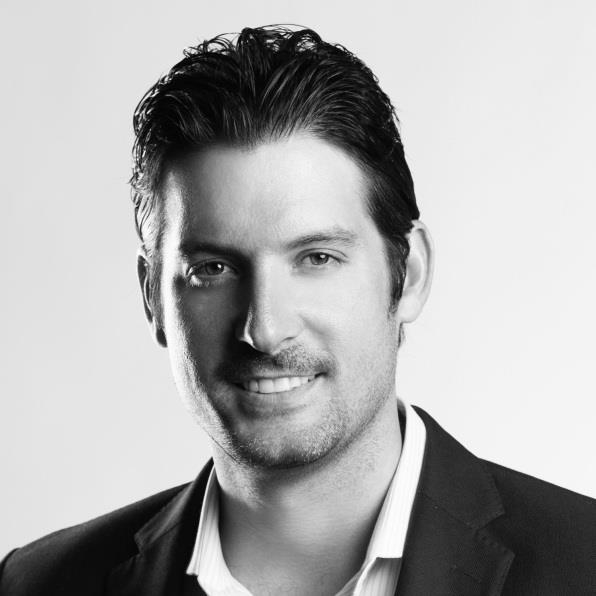
FC: Tell me about the experience. There’s been a little reporting about how the drone program is very similar to that of a fighter pilot actually in the air, in terms of the psychological impact, the adrenaline, the energy, and the trauma (when things go wrong).
BV: I was what people consider a targeter. I wasn’t flying the drones, I wasn’t the guy kicking down the door, or running into a hail of gunfire. Those guys are the closest thing to superheroes you could ever imagine. It was my job to pull that information together and use all these different tools—drones were just one piece of that puzzle. And so I say that to let people know, there’s a lot of folks involved in these operations, and there’s different trauma that occurs as a result: You might have drone pilots who feel the PTSD from it and you might have the majority of them that don’t feel anything because they don’t feel they have done anything wrong. You see both sides of that. I can tell you that the people I worked with, they loved what they did and they loved knowing that they were at the forefront of hunting down America’s enemies.
And for me, and I know for people in my position, which is very few at the time, this mental psychological toll that took place was really more of this addiction I had to finding these bad guys and knowing that if my team didn’t hunt these guys down or find this particular terrorist, that he could live another day to hurt innocent people. That’s a heavy burden. And knowing that we have this great technology at our disposal, drones, to maneuver to follow our targets, we rarely slept. I talk in the book about just how much of a toll that stress takes on your body. And yes, we’re sitting behind a computer, I’m not this physical powerhouse athlete like a lot of the Special Forces ann Navy Seal guys are, I am looking at death from a distance, but at the same time, I feel like I have this weight of the world on my shoulders because I’m the guy who’s actually pulling all of it together and saying, ‘That guy right there. He’s the one we need to get as soon as possible.’
FC: At Fast Company, we obviously cover a lot of innovation, and we cover advances in VR and AR and drone technology. Just wanted to get a sense of you from your experience in the military during that time: How did advances in technology help you do your job, complete your mission?
BV: This drone revolution happening is one of the reasons I got out of the military because I knew how fast it was starting to spread, that the same technology I was using on the government side was trickling over to the civilian side.
The tech is moving so fast. It’s faster than the regulations can keep up. One of the things that I am very passionate about is using my knowledge in the military of how drones work, of how we would go after terrorists, and using that for other types of scenarios—humanitarian operations and how can we use drones for wildlife conservation, how we can do work on anti-poaching programs, how we can use them to deliver medical aid. The drones that are available now in the consumer space—you probably see this all the time in your writing—they are just incredible pieces of equipment that in the last few years would not have been available to anyone. That can be both scary and exhilarating at the same time because now you’ve got this technology that anyone can buy on the street. Are there bad actors that may use it for bad?
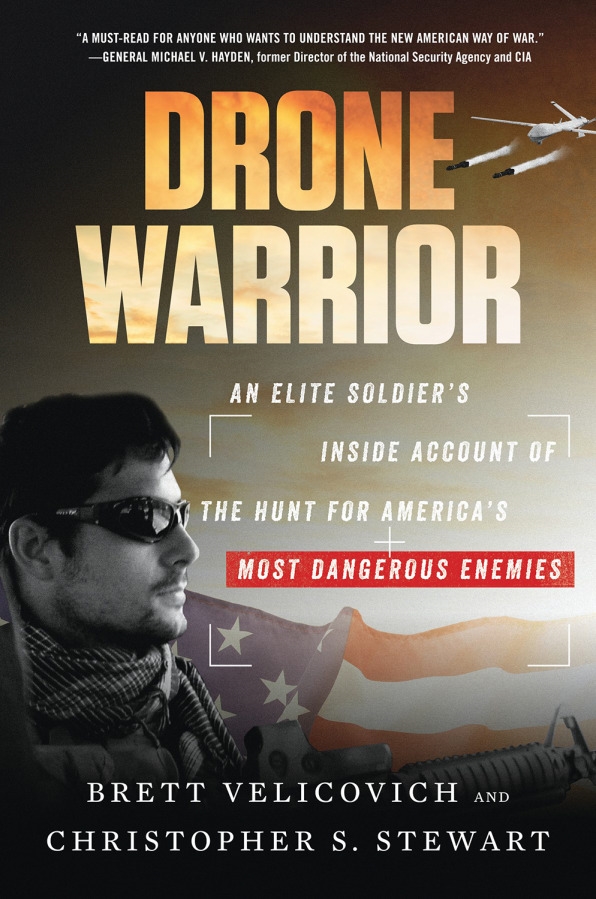
FC: When did you set up your company?
BV: Got a couple of different ones. But the one that we have a marketing banner under—we call it dronevertising—is called Expert Drones. And we started out with basically just a couple of retail stores. We repair people’s drones, we sell drones, we help people understand which one might be good for their kids. And it really morphed into something a bit more—we have contracts where we support the U.S. Army through marketing for STEM programs and we set up this big drone race course recently for the All-American Bowl for high school students and tricked it out with U.S. Army colors.
FC: What do you see as the most exciting ways that drones can transform our lives—whether in agriculture or to crack down on poaching wildlife or assisting with humanitarian crises?
BV: There are so many specifics out there and predictions. Goldman Sachs just drew up an analysis of what industries would benefit the most from them, and what’s fascinating to me is that there really isn’t an industry right now that you couldn’t somehow use a drone to help either be a force multiplier for the employees or help people do their job. It’s not about taking away jobs from people. I don’t want people to think that the idea is that drones are going to replace a person. It’s really a tool to enable, just like it was for me in the military.
And so when you think of the industries that most are predicting will benefit from them, there’s agriculture. You have drones that can spray pesticides across [vast areas], you have drones that can help farmers understand irrigation issues, or if their crops are having trouble because of some sort of outlying issue that you wouldn’t have otherwise been able to see with the naked eye. And you’ve got these cameras now. There are these whole ecosystems being built now of apps in Silicon Valley around how do we create a software that can help farmers? How do we create a software that can help at construction sites? They say basically construction, agriculture and utilities, utility inspections like AT&T inspecting wires and such. Those are the biggest industries that will, in the short term, benefit from drone usage. But then there’s this whole thing about regulation and how that either helps or harms the industry, but that’s for guys at the FAA to figure out.
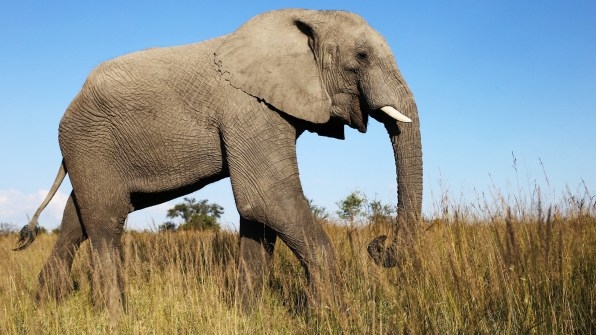
FC: How did you get involved in the anti-poaching program in Kenya?
BV: When I graduated from Duke University [after his time in the service], I was really looking to find a purpose and figure out, “What do I do with the rest of my life?” Because I figured that I’d done this really great thing and been surrounded by some of the most incredible people in the military, and when you get out of that, you kind of think like, “Well, gosh, what’s better?” And for me it was about finding this new purpose. And I didn’t necessarily think about drones until I was approached by a venture capital firm that actually funds projects in Africa, where they look to bring new-age technology to help fix issues there, and they said one of their friends there was a well-known conservationist and they said, “Look, our animals are dying. I just had to fly out my last rhino to a zoo” and they said, “We feel like drones may be a solution. And we hear you’re one of the best guys when it comes to drone tech.”
And they found me through a friend of a friend. And we said let’s go out there and look at this and see, one, is there a way that we can actually fix the problem and not be a burden? And then is there potential to keep the project sustained financially? Because it’s great to have that passion, but you’ve got to have some way to make money to sustain it, especially because this is a multi-million-dollar project that we’re looking at. I mean, you need $25-30 million dollars a year to fund it. And what we realized is that, yes, right away when I met with these conservationists, they need it. And going after these poachers out there, these poachers are a lot like terrorist networks, but just a lot more rudimentary. They don’t have missile launchers and surface-to-air stuff but they have poison arrows and spears and they’re using that to kill animals.
For me, the biggest thing was I didn’t want to go out there and basically say, “Here’a a DJI Phantom. Let’s save the world.” Because I know that they’re only so capable. So, for me, I know that we needed some of the same military equipment that I used in the military. Not the Predators, not bringing in missiles. But I’m talking about a Boeing ScanEagle, that’s a surveillance type of thing. We’ve been working on that project for a while now, and really the hardest part is getting these approvals from these departments in the government to bring them out there. And we want to do it the right way.
Bottom line, the humanitarian side, I just have such passion for that part of it. I was out in Somalia about a month ago. I donated some drones to the government out there because I knew they could use them to help sniff out bombs in the road and look out for IEDs. I am genuinely looking for projects to support. With either donations, drone donations or consumer drone donations, or just people that can benefit from my expertise in, How we can maybe implement the technology in a new way for companies to help them conduct their jobs better?
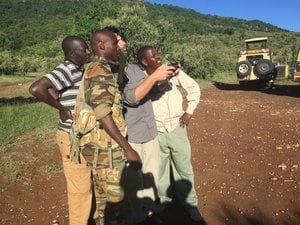
FC: Can you describe the drama of that moment when you almost got [ISIS leader] al-Baghdadi?
BV: The one that got away. I’d been out of the military already and I’d been one of the guys that really saw that guy as a big player in the network because we’d started seeing all this information about him being connected … it was almost overnight from when he got released from prison. He just came back on the scene like he’d taken over the prison somehow and became a leader again, or probably it was that a lot of his old friends were now in the network and were now senior commanders because, after years of war, they had sustained a lot of casualties. And at the time, the current al-Baghdadi, he was a leader but he wasn’t the No. 1 leader, and we saw how powerful he could become. We were really looking for the No. 1 and No. 2 guys at the time. And paying attention to him because we thought he could take us there. And in the book you see that there’s a really interesting way that he did take us there because he made a mistake that our guys were good enough to catch.
But the message that I’m really trying to get out there is about this second piece of the puzzle, where one of the guys on my team was out there and had to operate under different authorities. He found al-Baghdadi with a drone and was ready to do something, but the rules had changed because U.S. troops were told to pull out. The message I’m trying to get across is—and it doesn’t matter what administration it is; it could have happened in any administration. The larger message is that these troops—and these guys that are fighting these wars every single day, guys that are out there watching the Baghdadis of the world before anyone really cared—they need to be given the tools to do their job, and Washington needs to allow them, to delegate that responsibility to those levels of the guys that are good enough to do the job they were sent out there to do. And it’s really a message to all administrations, current and future: Give the warfighter what they need and they’re going to show you just how great they are and how they have America’s best interests in mind. And now it’s time to figure out who the next one is because there’s always another terrorist.
FC: Do you believe those recent reports that they finally got [ISIS leader] al-Baghdadi?
BV: I’m skeptical because I know Baghdadi better than anyone, just because of how much we were going after him, and one of the biggest regrets is that we didn’t get him. I also know that the U.S. government— the stuff we have, the pretty smart capabilities we have— the U.S. government would probably know before the Russians. Even if it was a Russian strike, I feel like the U.S. government would probably know, because they’ve got their hands in a lot of this stuff. I remember when the original leader of the Islamic State was killed, the press knew before most of the people in the chain of command.
Baghdadi knows how we operate, just knows because he’s seen his friends get picked off left and right, especially during these times that I’m taking about and from all sides and angles, and he knows not to stay in one place too long. And if he does, he’s probably not sitting there with 200 or 300 ISIS fighters surrounding him. Because he knows all it takes is one of them to rat him out. And so the Russians said, “We killed all these ISIS leaders, there were hundreds of them and Baghdadi was one of them.” Maybe I’m wrong but I don’t think that’s how he operates.
In his new book “Drone Warrior,” Brett Velicovich describes the drama of his anti-terrorist efforts and how he’s now using drones for humanitarian purposes.
The tough soldier who spent a decade leading a team in Iraq that guided drones and special forces to hunt down and kill top ISIS leaders retires from the military. Back in the States, he starts a new company that takes advantage of his military experience and high-tech knowledge, but for a different purpose—using drones to find mines in Somalia and nab wildlife poachers in Kenya. If you think that sounds like the kind of story Hollywood producers would salivate over, you’re right.
Fast Company , Read Full Story
(39)

